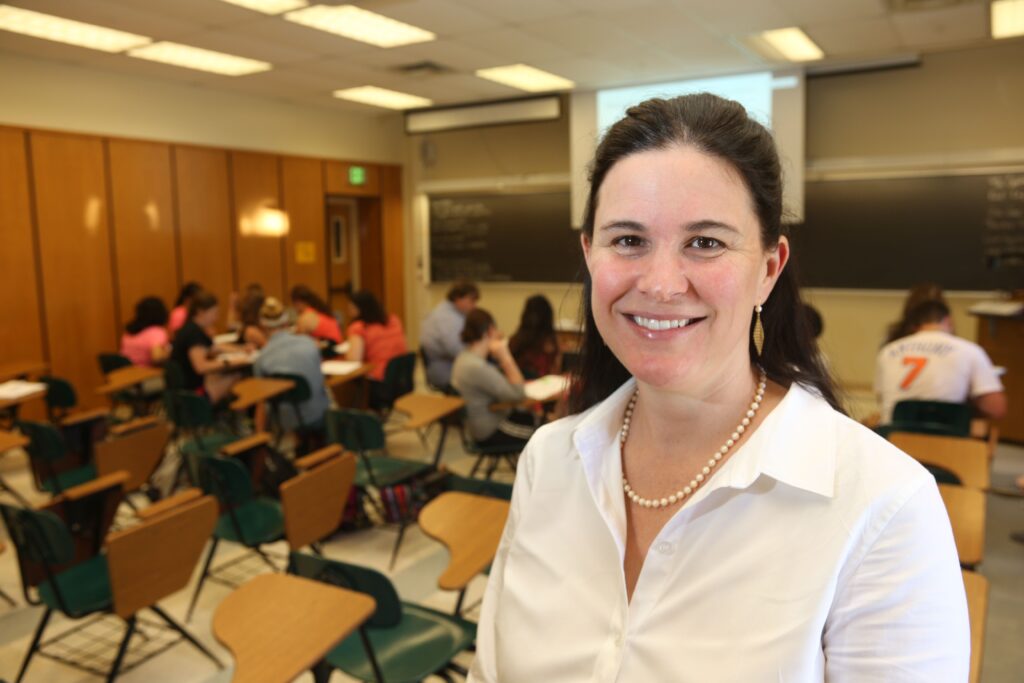PWL instructor saves time, trouble using Variate for personalized math-based assessments

Creating new versions of math-based problems can be time-consuming. Katy Rainey, associate professor of plant breeding and genetics in the Department of Agronomy at the Purdue West Lafayette campus, was looking for a sustainable way to generate unique versions of genetics problems for her course — something she previously did manually every semester.
Rainey estimated she’s written thousands of assessment questions in her time teaching. She found online resources of little help because they seemed to use the same genetics problems over and over. Even problems she had written in previous semesters eventually ended up online, necessitating the need for rewriting questions to promote student problem-solving and academic honesty.
“Genetics calculation assessment questions can be challenging to revise,” Rainey pointed out. “At the same time genetics calculations are tricky, and the students really need to do these at home with time to consider their answers.”
Revising questions also created opportunities for errors. Rainey found she was spending too much time revising questions and occasionally making mistakes in the manual calculations that could cause headaches for students and her. “When you teach a course for nine semesters with 800 to 1,000 points of assessments per semester you are bound to make mistakes every now and then,” Rainey exclaimed.
In the fall of 2020, Rainey learned about Variate, an online assessment platform created at Purdue that allows West Lafayette instructors to easily create math-based problems using randomized variables to ensure that each student sees a unique version of a problem.
Once she learned the basics of Variate, Rainey needed to see if she could adapt static genetics problems to be randomized with biological variability. “I had to learn some tricks to simulate noise,” she explained. “Biological data is messy which is why we use statistics.” In the process, she learned the problems themselves “inside and out.”
In Rainey’s estimation, the automatic grading done by Variate alone “is going to save dozens of hours” each semester, especially considering the scale of her course. As an added benefit, she has found that it “saves time that’s stressful and not fun” — like creating questions with fresh variable combinations. The interoperability enabled Rainey to easily change up problems by altering which variable to solve for.
In addition to saving her time revising and grading assessments, Rainey sees advantages for students, too. Variate allows multiple answer attempts so students can seek her help solving a problem if they answer the first attempt incorrectly. She likes to give her students lots of opportunities to practice problem-solving and Variate allows her to do that with confidence.
Rainey now has a library of problems in Variate that is sustainable, scalable, and transferable every semester she teaches AGRY 32000. “Once a problem is finalized, you know it’s correct, unlike manual calculations,” said Rainey.
Supporting documentation and videos are available on the Variate webpage. Variate is currently available only at the PWL campus. For more information about Variate, PWL instructors may contact tlt@purdue.edu.
Innovative Learning is Purdue West Lafayette’s hub approach to connect instructors to the resources they need to engage students, develop courses in any instructional modality, and enhance learning across the University. Members include the Center for Instructional Excellence, Libraries and the School of Information Studies, Purdue Online and Teaching and Learning Technologies. To learn more, visit www.purdue.edu/innovativelearning or email InnovativeLearningTeam@purdue.edu.